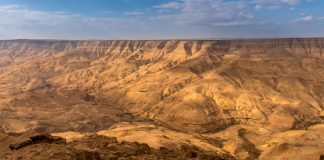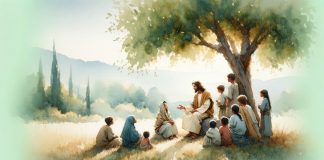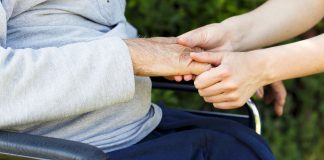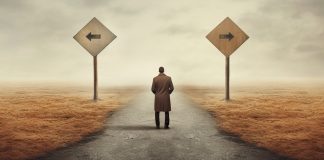Bible echoes through a broken stone
A black basalt stone found in the desert of Jordan has an inscription with the earliest known use of the name of Yahweh (one of the many names for the Old Testament God). It is one of many ancient items which confirm biblical history.
COVID-19: Defending ourselves against fake news and panic
The fight against the new coronavirus is accompanied by several parallel fights, including the fight against fear, which can turn into panic—one of the most dangerous social phenomena.
What we can learn from our children
The relationship between a parent and their child is one of the most significant in their lives, with its primary role being education.
The fight against Alzheimer’s: a fight for the moment
"It isn't the man I married. It isn't the man I knew." This is how Sabina Shalom, whose husband was diagnosed with Alzheimer's disease, begins her confession. The woman, who has reached a respectable age, says that it all started with some serious quarrels between her and her husband: "Papers were lost, bills were not getting paid."
Jesus: Where two worlds meet
Un hombre pasa con un pan al hombro.../Otro busca en el fango huesos, cáscaras/¿Cómo escribir después del infinito?
Is faith reasonable?
Science and faith, as important tools in the knowledge process, are often perceived to be in a tense relationship with each other, because of the fundamentally different worldviews that characterize them. The implications for life’s big questions are obvious—and sufficient to rob someone of the comfort of indifference towards such high-stakes conclusions.
A new theory of evolution—or several complementary theories?
"Strange as it sounds, scientists still do not know the answers to some of the most basic questions about how life on Earth evolved. Take eyes, for instance. Where do they come from, exactly?" These are the words with which an extensive article published by The Guardian in June 2022 begins.
Hope, a legacy of another world
Hope can be palpable and elusive at the same time, both reasonable and independent of logic. Yet this independence from logic is not synonymous with indifference to reason, but a victory over it. Hope has its own logic, one that changes lives for the better.
A mind at war in peacetime
When you discover that the only thing you have left is faith in God, you fervently wish that your faith doesn't end up poisoning your soul.
How can the church support those affected by dementia?
According to experts and organisations that support this category of patients, people suffering from dementia and their caregivers need all the congregational support they can get.
Free to make decisions for only 10% of the time
Of the approximately 26-28,000 days (73-79 years) that the average person lives, only a maximum of 10% of that time is actually spent as an adult making decisions about what to do. The rest of our time is spent in activities that are generally unavoidable.
The slalom between regrets and wrong estimates
In October 2012, Forbes magazine published a list of the top 25 biggest regrets people have. According to the magazine, the most significant regrets are those concerning relationships with family members and friends, regrets concerning oneself, and career regrets.
Why do we lose our friends?
“Walking with a friend in the dark is better than walking alone in the light” (Hellen Keller).
Cryptocurrencies: Three difficult questions about Bitcoin
The world of cryptocurrencies is a hyper-competitive one, where the most expensive currency seems to be, in fact, quality information. Therefore, given the opportunity to talk to an investor with four years of experience in crypto trading, I considered it a good moment to check the opinions that may inform the decision to invest or not in cryptocurrencies.


























